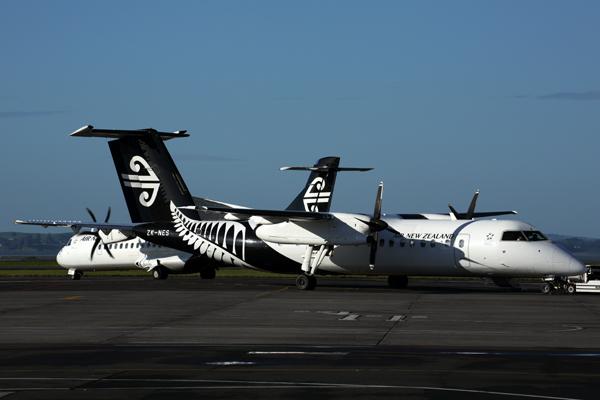
Air New Zealand reported that its domestic demand is starting to suffer due to a spike in COVID-19 cases in the country, and warned its international recovery will be affected by continued self-isolation requirements.
New Zealand is seeing COVID-19 cases surge in what is likely the beginning of the omicron variant wave that has hit many other countries. This is already causing a softening of demand, CEO Greg Foran said during the airline’s fiscal half-year earnings call.
The country is “in the early stages” of the omicron outbreak, “something we knew was coming and have prepared as much as we can for,” Foran said. Both business and leisure travel is down, and “there is a large degree of uncertainty” about domestic demand through the end of the airline’s fiscal year on June 30, he said.
The outlook is also cloudy for international demand. On the positive side, the government’s announcement of a phased border opening has led to increased international bookings. However, a requirement for seven days of self-isolation will remain for arriving international passengers.
Air New Zealand expects these self-isolation restrictions will have a substantial adverse effect on international demand. The timing of when the isolation period will be reduced or removed remains unclear, “driving continued uncertainty” in the international operation, Foran said.
“The airline does not expect international demand to recover substantially until self-isolation restrictions are removed,” he said.
Senior airline executives expect capacity to be at 50-60% of pre-pandemic levels for the Australia and Pacific Island markets during the upcoming southern hemisphere winter season. Capacity will likely be at 15-20% of pre-pandemic levels for the carrier’s long-haul routes.
Air New Zealand plans to operate 65-70% of pre-COVID domestic capacity over the next three months, the carrier said.
Air New Zealand reported a net loss of NZ$272 million ($183 million) for the six months through Dec. 31.
